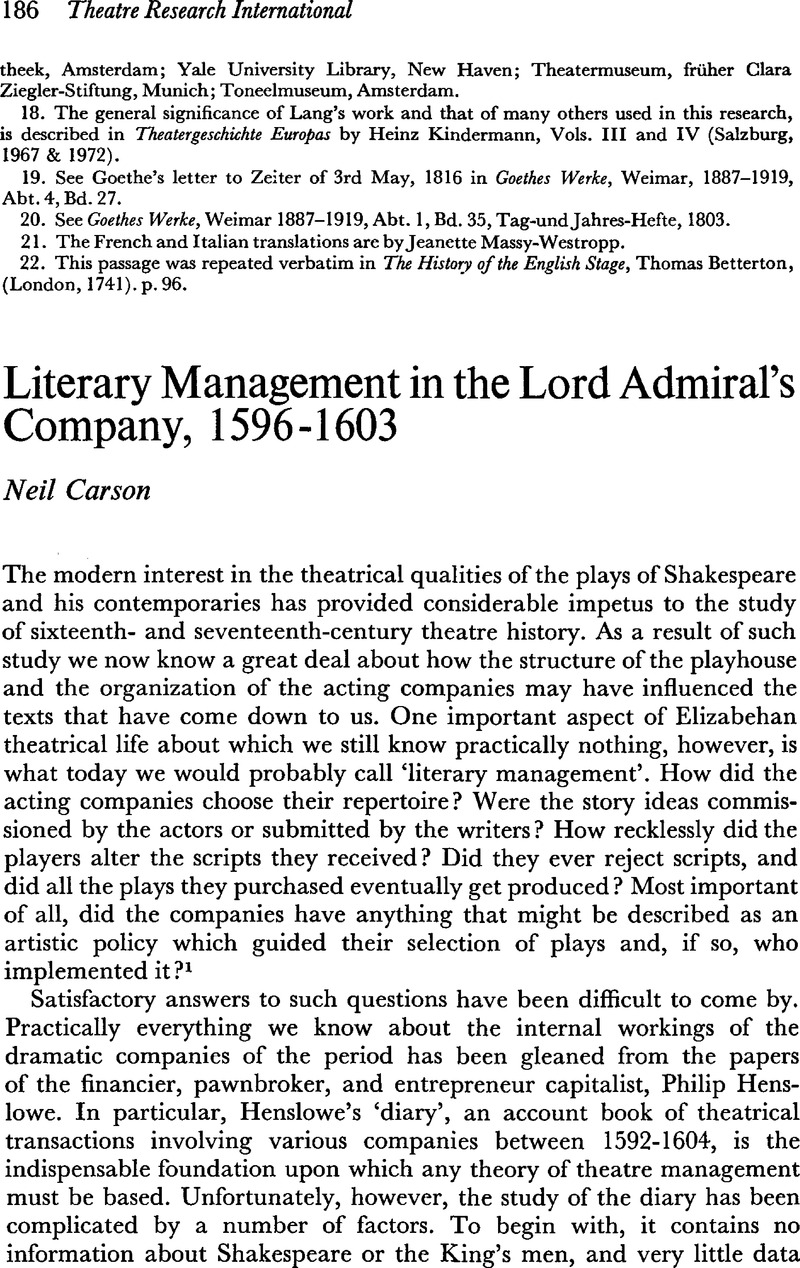No CrossRef data available.
Published online by Cambridge University Press: 23 January 2009

1. Bentley, G. E. in The Profession of Dramatist in Shakespeare's Time (Princeton, 1971)Google Scholar touches on many of these questions, but in dealing with the entire period 1590–1642 he makes generalizations which over-simplify, and occasionally distort, the facts.
2. Fleay, F. G., A Chronicle History of the London Stage (London, 1890), pp. 117–18.Google Scholar
3. Greg, W. W., ed., Henslowe's Diary, II (London, 1908), 112, note 1.Google Scholar
4. ibid., pp. 111, 119, 124.
5. ibid., p.112.
6. Miller, Edwin H., The Profession of Writer in Elizabethan England (Cambridge, Mass., 1959), p. 11.CrossRefGoogle Scholar
7. Simpson, Percy, ‘Actors and Acting’. Shakespeare's England, II (London, 1916), 242Google Scholar; Gurr, Andrew, The Shakespearean Stage, 1574–1642 (London, 1970), p. 51.Google Scholar
8. Sheavyn, Phoebe, The Literary Profession in the Elizabethan Age (Manchester, 1909, revised 1967), p.92Google Scholar; Bentley, G. E., The Profession of Dramatist, p. 205.Google Scholar
9. Wickham, Glynne, Early English Stages, II, Part 1 (London, 1963), 129.Google Scholar
10. Foakes, R. A., ‘Henslowe and the Theatre of the 1590s’, Research Opportunities in Renaissance Drama, VI (1963), 4–6.CrossRefGoogle Scholar
11. Henslowe's Diary, II, 122.Google Scholar
12. Alleyn had at this time retired from the stage and seems not to have played an active role in the management of the company then under Robert Shaw.
13. Dulwich MS I, 106, reprinted in Chambers, E. K., The Elizabethan Stage, II (London, 1923) 248–9.Google Scholar
14. Greg, W. W., ed., Henslowe's Papers (London, 1907), p. 23.Google Scholar
15. The exact nature of the relationship between Henslowe and the Admiral's men at this time is impossible to ascertain since Henslowe's method of book-keeping between January 24 and 5 November 1597, has not yet been satisfactorily interpreted.
16. Henslowe's sub-totals are entered on folios 48v, 50v, and 52 of the diary.
17. If we assume that the usual fee for a new play at this time was between £5 and £7, then payments of less that £4 probably represent money paid for unfinished plays or shorter writing assignments such as revision.
18. The attempts to bind Chettle and Porter to write only for the companies financed by Henslowe indicate the need to guarantee a supply of scripts.